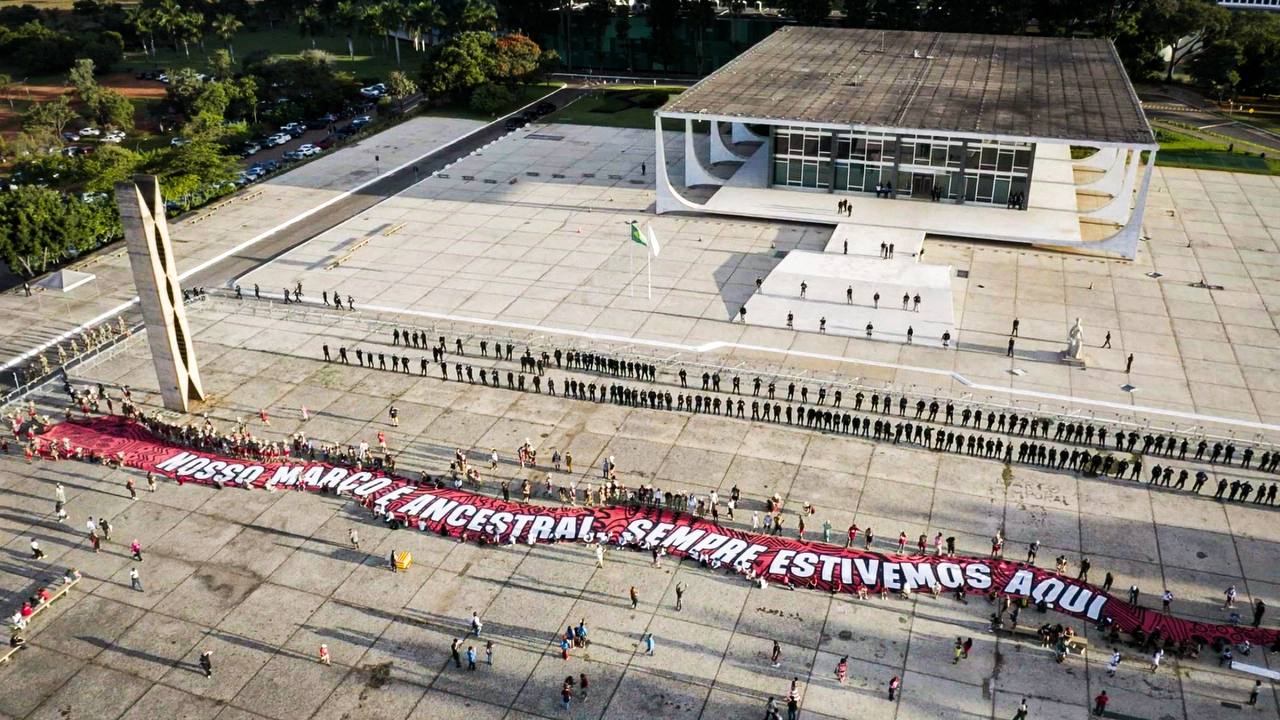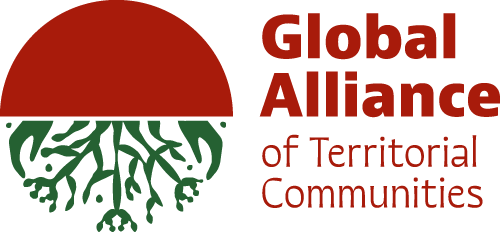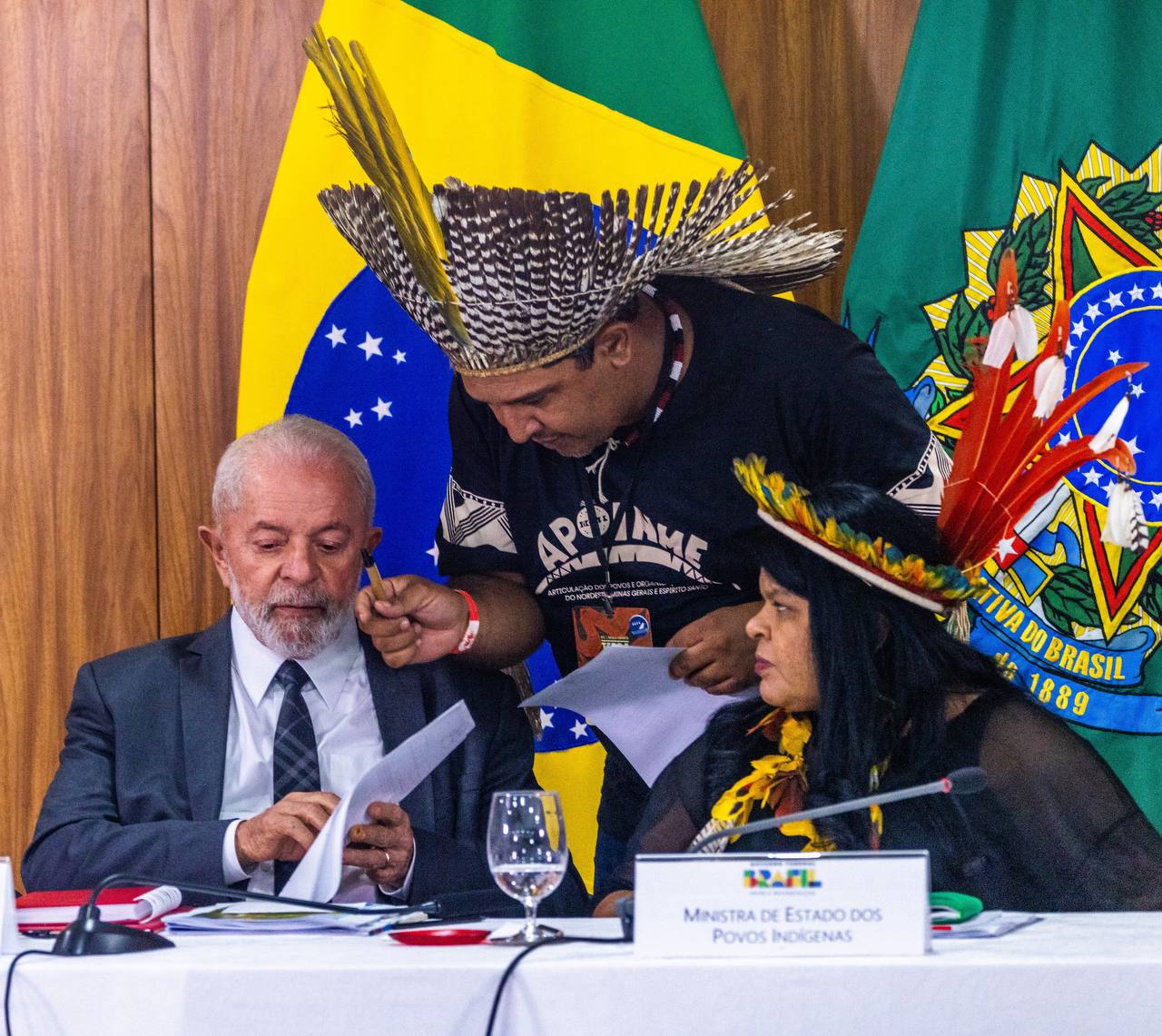Indigenous land titling in Brazil has fallen behind as president Lula had promised to complete 14 processes in his first 100 days of government, but had only titled 10 in over a year in power.
April, 2024 — President Luiz Inácio Lula da Silva met with a delegation of 40 indigenous leaders from across Brazil last Thursday (25) afternoon at the Palácio do Planalto. The gathering, which took place during the 20th edition of the Free Land Camp (Acampamento Terra Livre ATL)- the largest indigenous mobilisation in the country- concluded with the creation of a Task Force to advance land titling.
The meeting followed a massive march where eight thousands of Indigenous Peoples and Civil Society Movements filled the city’s central area with echoing chants and energetic calls for the government to advance land titling and stop large projects that pose threats to their territories. The rally ended at the Praça dos Três Poderes, where groups of indigenous organisations continued on with their protest as the meeting took place.
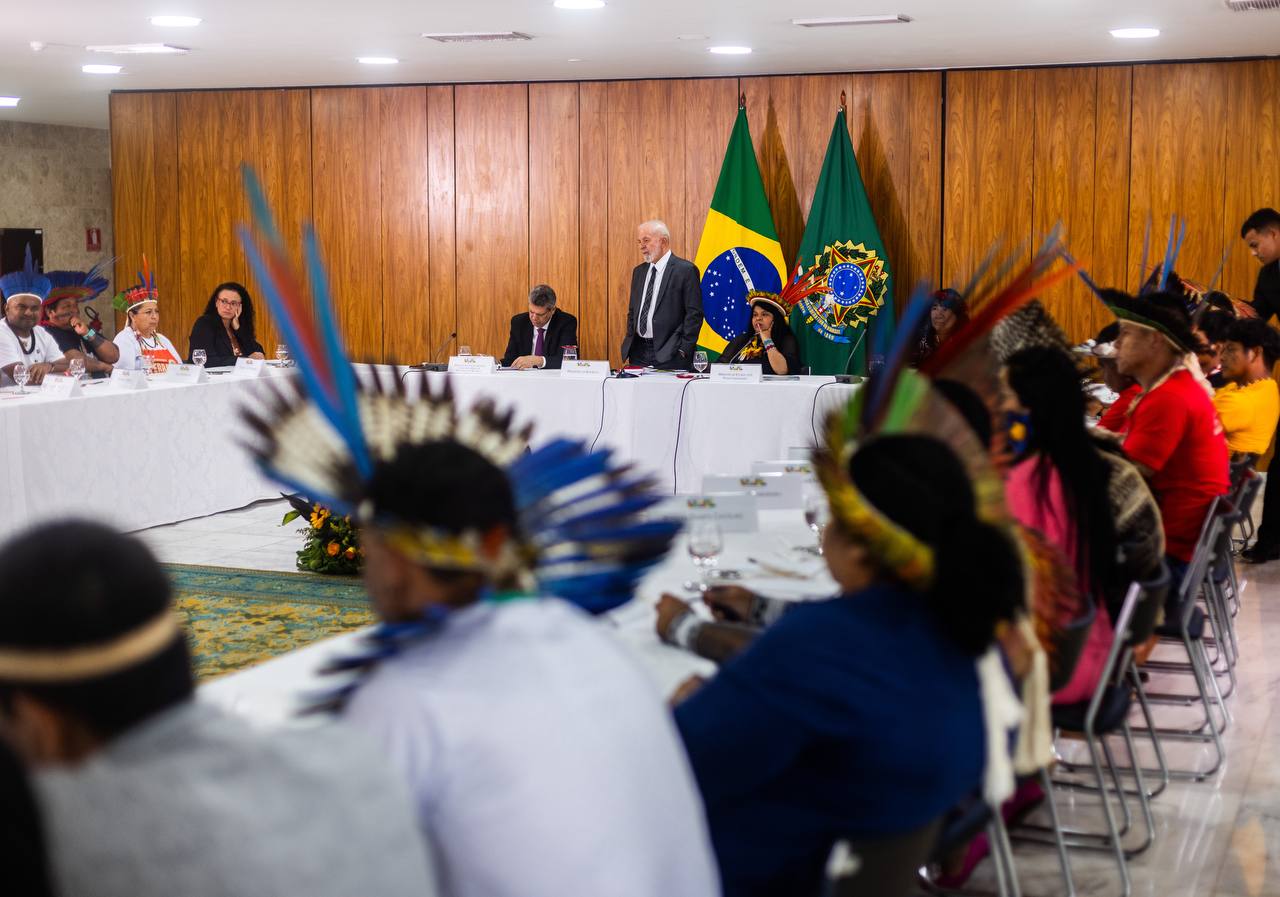

Photos: Kamikia Kisedje
The Articulation of Indigenous Peoples of Brazil (APIB) had been denouncing the government’s failed promise to title 14 indigenous lands in the first 100 days of Lula’s government. In over a year they had titled 10 of those lands, whilst many others awaited. Moreover, they raised alarms as Congress debated passing a law that could severely limit their rights to land, the Time Frame Law (Marco Temporal).
“In our understanding, there is no legal impediment to land titling. What there is is a political impediment, which we hope will be resolved with this task force, which is a demand from the indigenous movement, so that we can actually unblock land demarcations. Not only of the four lands, not only of the 25 lands with declaratory ordinances [already signed], but so that, once and for all, we can overcome administrative and political issues for demarcating indigenous lands in the country,” said Dinamam Tuxá, a Executive Coordinator to APIB.
Responding to the primary demands of APIB, the government announced the establishment of a governmental task force aimed at unlocking pending land titling processes awaiting presidential approval. Priority will be given to four key areas–including the Xukuru e Morro dos Cavalos- each mired in disputes awaiting resolution.
The task force, chaired by Minister Guajajara, will collaborate with key governmental bodies, including the Office of the Presidency, the Ministry of Justice and Public Security, the Ministry of Agrarian Development and Family Farming, the Attorney General’s Office (AGU), and the National Foundation of Indigenous Peoples (Funai).
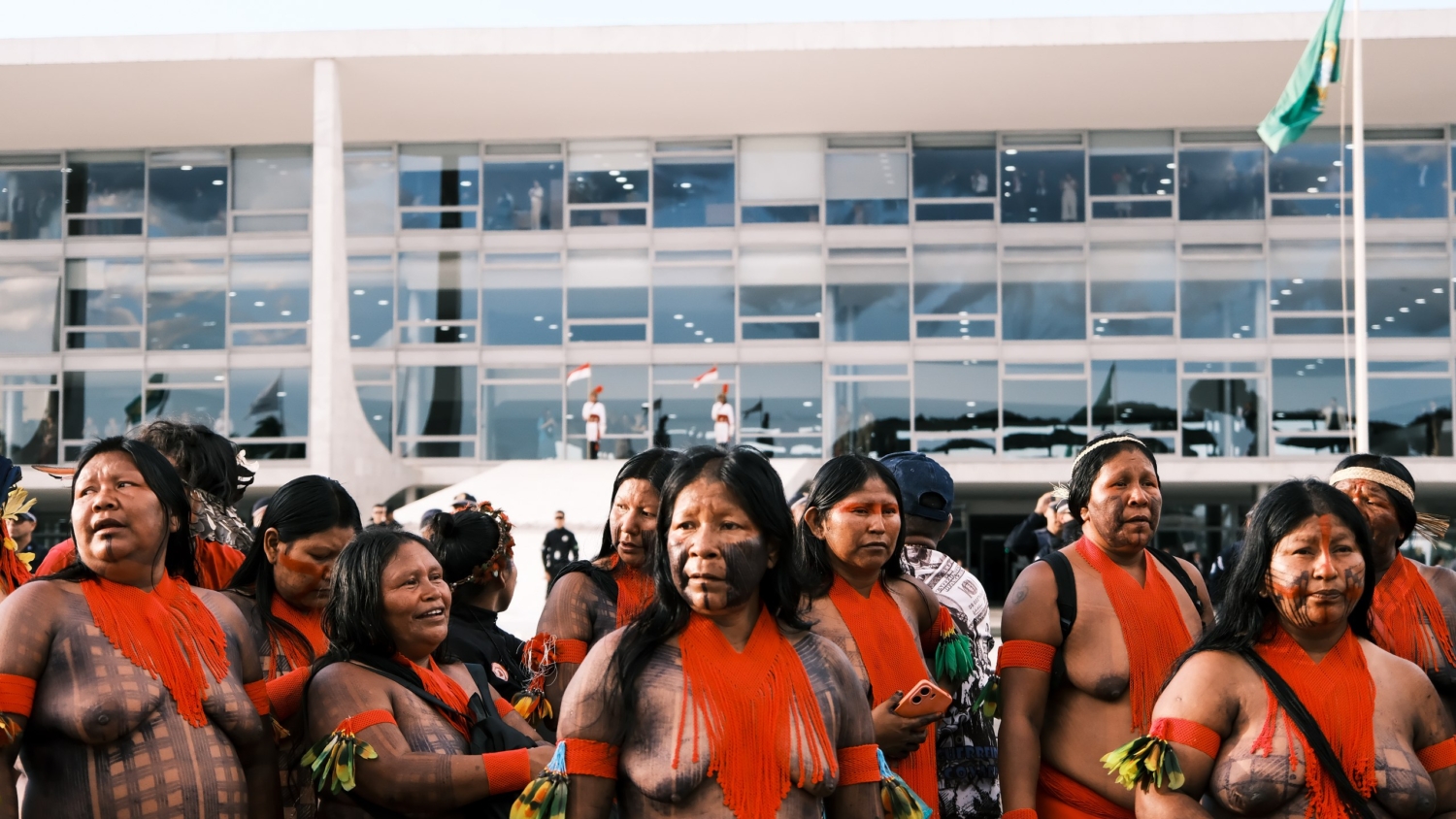

Indigenous movement mobilised against a bill that severely hinders their rights and projects harding their territories
During the 20th edition of the Free Land Camp (Acampamento Terra Livre), Indigenous Peoples took over Brasilia’s streets with over 8,000 thousand peoples from over 200 distinct indigenous ethnic groups. In their chants, they argued against the Time Frame Thesis (Marco Temporal) and large projects like the Ferrogrão which threaten their rights and territories.
The “Time Frame thesis” is a legal concept asserting that Indigenous peoples are entitled to claim only the lands they inhabited exactly on October 5, 1988, the date of Brazil’s Constitution promulgation. The proposition does not acknowledge the centuries old history of Indigenous Peoples of the country and does not account for the forced displacement they suffered during Brazil’s dictatorship in the 20th century. As a response, the indigenous movement united under the “Our time frame is ancestral” argument.
Indigenous leaders walked through Brasilia next to a large truck that was wrapped to simulate a “train of death”, signaling their opposition to the Ferrogão railing project. The new train route would cut through sacred indigenous lands in the Amazon to facilitate soy exports. Monoculture of soy is one of the leading causes of deforestation and land grabbing, and the train would only aggravate the circumstances.
